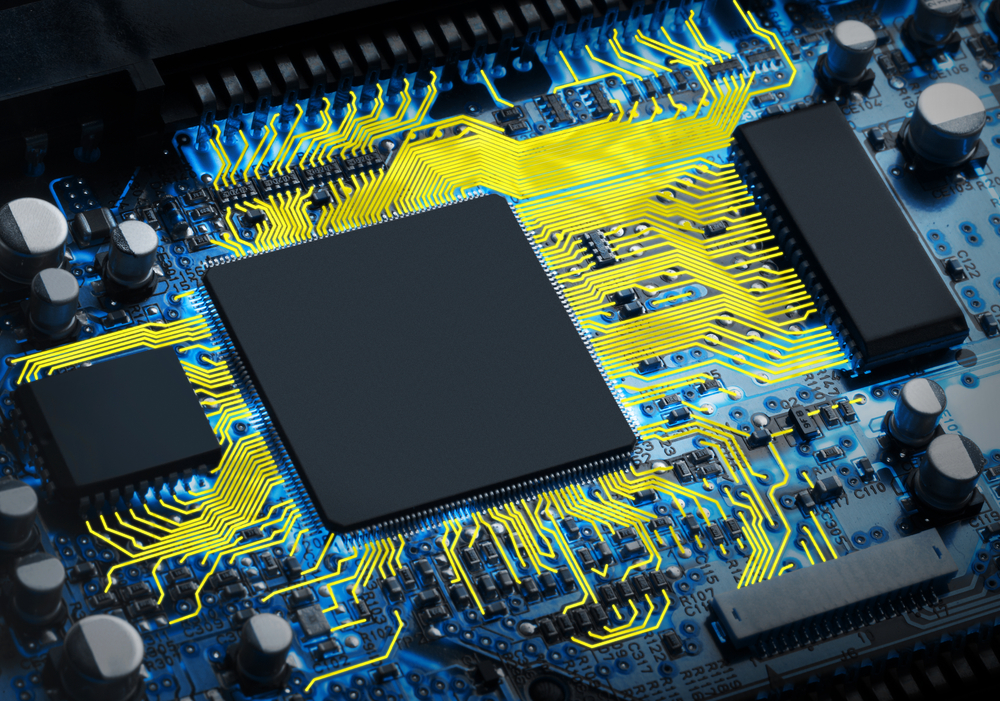In the ever-evolving landscape of artificial intelligence, a two-year-old startup, Etched, has emerged with a bold mission: to challenge Nvidia’s dominance in the AI chip market.
Founded by Harvard dropouts and headquartered in Cupertino, California, Etched has recently raised $120 million in venture funding to develop its competitive AI chip, Sohu.
This significant investment positions Etched to make waves in a field currently dominated by Nvidia.
Etched’s development of the Sohu chip
Etched’s co-founder and CEO, Gavin Uberti, envisions a future where AI’s power-hungry computing needs are met by customized, hard-wired chips known as ASICs.
Unlike Nvidia’s general-purpose GPUs, which are versatile but costly, ASICs are designed to perform specific AI models with greater efficiency.
“We’re making the biggest bet in AI,” Uberti stated.
If transformers go away, we’ll die. But if they stick around, we’re the biggest company of all time.
The Sohu chip is tailored for training and deploying AI models using “transformers,” the core architecture behind advancements like OpenAI’s ChatGPT.
This focus on a single AI architecture allows Sohu to optimize performance and efficiency, providing a potential edge over Nvidia’s more general solutions.
The venture backing and competitive landscape
Despite its nascent stage, Etched has attracted significant attention and investment. Primary Venture Partners and Positive Sum Ventures led the funding round, with notable backers including Peter Thiel, Stanley Druckenmiller, and Cruise founder Kyle Vogt.
This financial backing underscores the high stakes and potential of Etched’s venture.
Nvidia currently holds more than 80% of the AI chip market share, generating immense revenue and growth. However, startups like Etched, Cerebras Systems, and Tenstorrent see the vast opportunity in AI semiconductors as worth the risk.
These companies aim to carve out niches by offering specialized solutions that promise greater efficiency and lower costs for specific AI applications.
Challenges in AI chip industry
The semiconductor industry is notoriously challenging for startups, with long development cycles, high capital requirements, and limited manufacturing partnerships.
Etched, however, is leveraging the expertise of industry veterans and has partnered with Taiwan Semiconductor Manufacturing Co. to build its chips.
Co-founder Robert Wachen emphasized the importance of infrastructure in shaping the future of technology.
The entire future of technology is going to be shaped by whether the infrastructure can handle the scale.
This perspective drives Etched’s focus on creating efficient and scalable AI chips that can meet the growing demands of AI applications.
The strategic approach and future prospects
Etched’s strategy involves specializing in transformers, which process data in predictable ways. This allows the Sohu chip to allocate more space to transistors, enhancing its raw computing power.
Additionally, by hard coding the AI architecture into the chip, Etched aims to reduce latency and unlock new use cases, such as real-time AI agents and voice conversations.
Uberti compares the impact of specialized AI chips to the introduction of ASICs for cryptocurrency mining, which significantly reduced demand for Nvidia GPUs. He believes that as AI models are deployed at scale, the demand for efficient, specialized chips will grow.
However, Etched faces formidable competition from Nvidia and other tech giants with extensive resources and development capabilities. To succeed, Etched must move swiftly and innovate continuously.
The company, driven by a sense of urgency, has a countdown timer in its headquarters to remind the team of their ambitious goals.
In conclusion, Etched’s $120 million funding round marks a significant step in its journey to challenge Nvidia’s dominance in the AI chip market. With its focus on specialized, efficient AI chips and strong venture backing, Etched is poised to make a substantial impact.
The startup’s ability to bring its Sohu chip to market quickly and effectively will be crucial in determining its success in this highly competitive industry.
The post This 2-year-old startup just got $120 M to build an AI chip and counter Nvidia appeared first on Invezz





